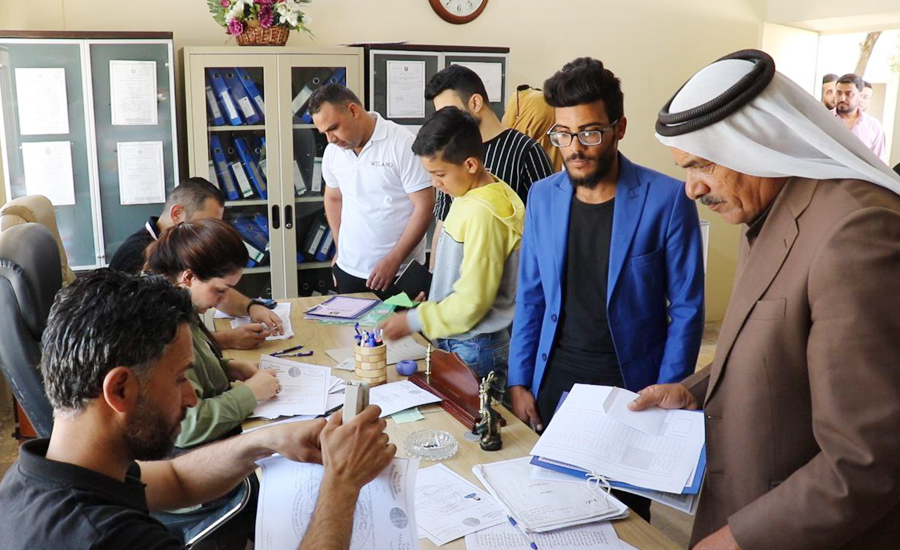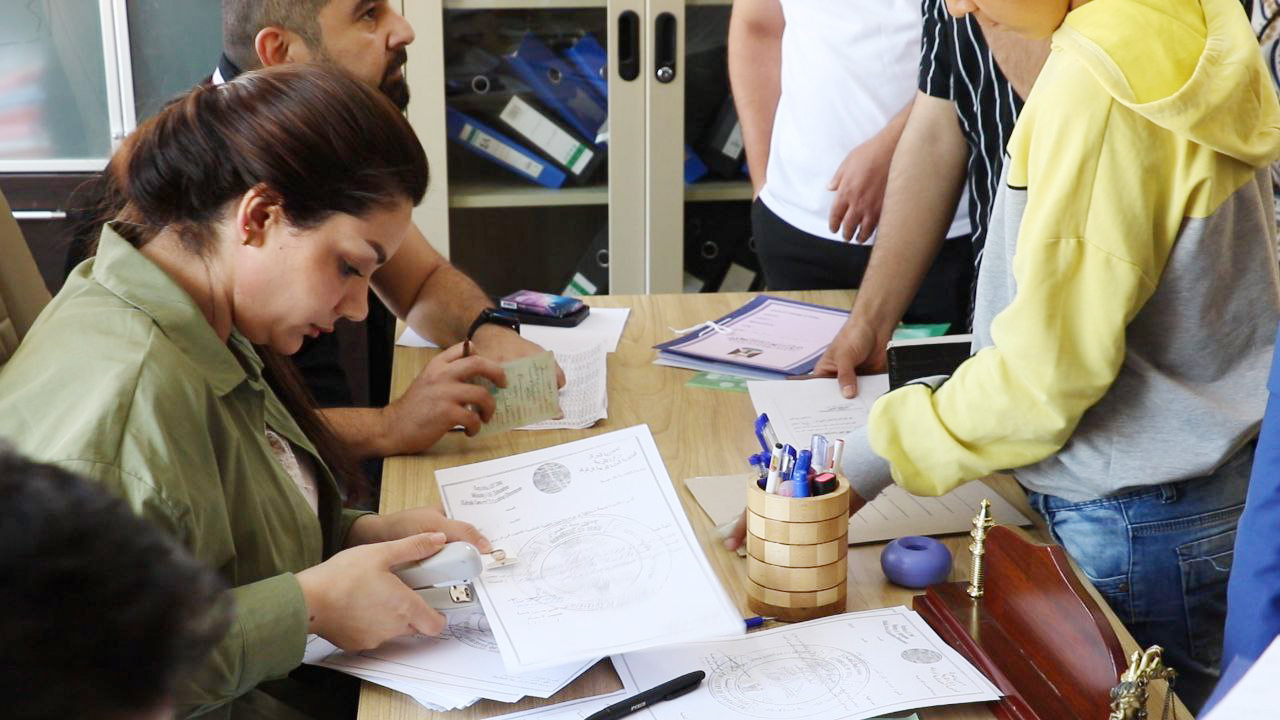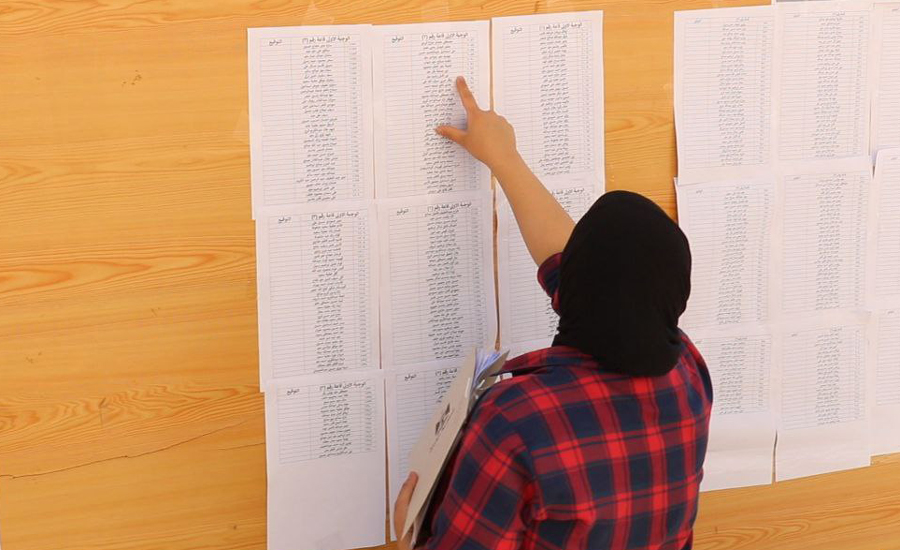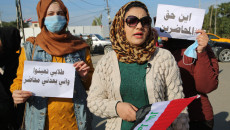The Directorate General for Education in Kirkuk Governorate is preparing to complete the procedures for permanent employment of over 17,000 lecturers hired per temporary contracts, but the Kurds and Turkmens complain arguing they make only 6,000.
These efforts by Kirkuk Education come after a decision by the Iraqi Ministry of Education, which is being implemented in all governorates, and stipulates the transfer of all lecturers from contracts to permanent staff. The decision includes 17,267 lecturers in Kirkuk, according to the provincial education officials.
The process includes contractors covered by Iraqi government decisions (130 and 315) in the departments of Arabic, Kurdish, Turkmen, literacy and vocational studies.
Saman Majeed, assistant director general of education in Kirkuk, told KirkukNow, “The process takes between a month and a month and a half. After fixing this number, they will be re-distributed to schools according to their specializations, and each of them has to serve out of the cities (rural and villages) for five years.”
Currently, two eye examination centers have been allocated which charge 25,000 Iraqi dinars ($18) for eye examination, as part of application for employment, after which those involved must bring their graduation certificate and contract documents to submit their names to the ministry.
In educational institutions in Kirkuk, there are three types of teachers, permanent staff, contract and volunteer lecturers, and at present the decision includes contractors only.

What aroused the dissatisfaction of some components and destinations of Kirkuk is that the largest share goes to the Arab component and their number exceeds 10 thousand people, while the number of beneficiaries of the Kurds is less than three thousand people and the Turkmen more than two thousand people.
However, some education officials who spoke to (KirkukNow) confirmed that the failure was on the part of the Kurdish and Turkmen components, which led to a decrease in the percentage of their beneficiaries.
An official in Kirkuk education, who is Kurdish, told KirkukNow, “When the Iraqi government decided to convert the daily wage earners who served in 2019 into contracts, it turned out at the time that the number of Kurdish lecturers was less, or that they were attending schools in an irregular manner, or that they were lecturers but stopped working in 2019, and as a result they were not covered by the decision.”
The majority of Kurdish graduates were not willing to attend voluntarily, unlike Arabs and even Turkmens
The source said, "The majority of Kurdish graduates were not willing to attend voluntarily, unlike Arabs and even Turkmens, a large number of whom worked as paid or free lecturers."
He explained that "another reason is that the principals of Kurdish schools were not cooperating as necessary with Kurdish graduates wishing to work as temporary lecturers."
A graduate wishing to teach as a lecturer in a school must obtain the approval of the school principal.
The source, who indicated that he monitored the difference in the number of those included in the confirmation decision from the nationalities of Kirkuk, said, "the majority of the principals of Kurdish schools were not helpful in expressing no objection to the commencement of graduates, unlike the principals of Arab schools, especially in the areas liberated from the control of Da’esh (ISIS)."
However, the official in Kirkuk Education did not clarify whether the no-objection letter depends on the school's need for teaching staff or not.

In May 2021, the General Secretariat of the Council of Ministers instructed to convert daily wage workers within the Ministry of Education into contracts, and the decision included lecturers who were continuing their work until 2019.
The contractor receives a monthly salary of 250,000 dinars, and enjoys the same rights and privileges as the permanent owners, including retirement after a service of no less than 15 years, obtaining loans, maternity leave and regular vacations, and applying for plots of land.
In the event that the government decides to launch appointments, priority will be given to contractors, according to the government's decision.
While the lecturers are deprived of these rights and privileges, they are paid an amount of 125,000 IQD ($87) per month as transportation fees.
Another source in Kirkuk education, who asked not to be named for fear of being held accountable, said, "In addition to the reasons you talked about, there is another reason, which is that the administration of Kirkuk and the Directorate of Education are in the hands of the Arab component, and despite that, there is a shortcoming on the part of the Kurds and a lack of analysis of the issue."
The official in Kirkuk education indicated that "the number of contractors is known, and the percentage will be in that way."
However, Parwin Fateh, the director of the educational supervision unit of the Kurdish Studies Department in Kirkuk, says, "We were able to exert pressure and coordination to increase the percentage of the Kurdish population, as we added 500 graduates," but she did not explain the legality of this addition and how it is because the conditions for securing the permanent employment of the contract-based lecturers are clear.
We were able to exert pressure and coordination to increase the percentage of the Kurdish population, as we added 500 graduates
Fateh, who is also assigned to head one of the committees for confirming application, said, "We manage daily the transactions of some of the applicants. They have to bring their certificates and the contract document, and then fill out a form."
About 500 transactions are received from graduates daily through five various committees.
In general, the process faced protests and obstacles. Iyad Khaled, a contract-based lecturer who graduated from a university in the Kurdistan Region, said, "Kirkuk education requires that the graduation certificate include the barcode (serial number), but the barcode is only available in Iraqi universities, so our transactions face obstacles."
Hoshang Othman, another applicant, complained that his name was not included in the list, and said, "However, there are others whose names are repeated in the list."
Another category of lecturers was appointed as contracts with a preparatory stage certificate, and after they completed the university or institute, they became obligated to amend their certificates, but their names were raised to Baghdad two months ago and did not return, and the reason for this is that the applicant will not be fixed on the permanent staff list unless he holds a diploma or a bachelor degree.
Saman Majeed, assistant general director of Kirkuk Education, confirmed some of the problems, noting that the process is not easy in general.
"Those who face problems, especially with regard to the graduation certificate, are obligated to bring a sponsor. As for those whose certificates have not been modified, they must wait for a year and submit a request to amend their certificates."
Kirkuk Education is currently working on a plan to distribute the 17,000 people to schools and fill the vacant specializations, especially at the suburbs of Kirkuk.






